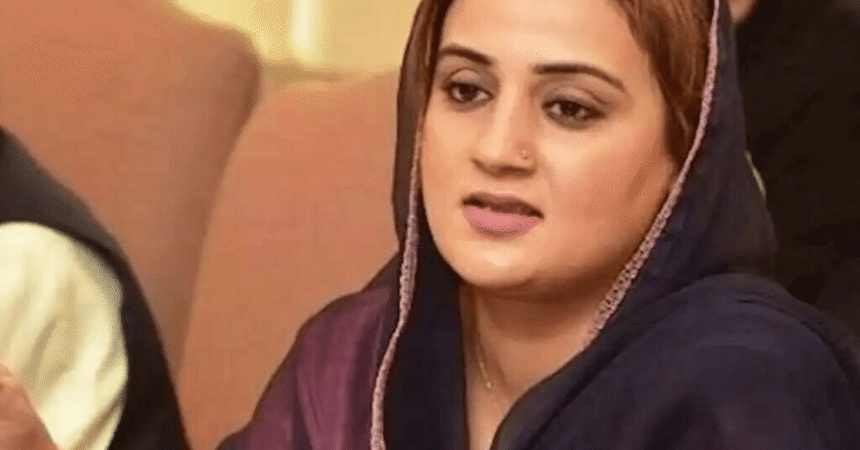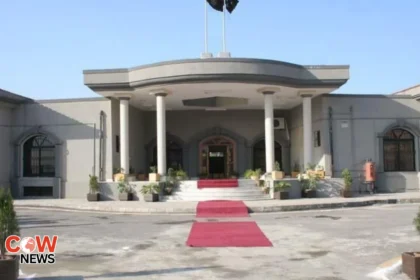Lahore: In a pointed press conference held on Saturday, Punjab Information Minister Azma Bukhari sharply criticized the Pakistan Tehreek-e-Insaf (PTI) for planning a protest demonstration at Liaquat Bagh in Rawalpindi. Bukhari asserted that the PTI, led by former Prime Minister Imran Khan, has a history of creating chaos rather than fostering peace and stability within the country. Her remarks come at a time when political tensions in Pakistan are high, with various parties engaging in protests and rallies to assert their agendas.
Context of the Protests
The political landscape in Pakistan has been increasingly polarized, particularly since Imran Khan’s ousting from the premiership in April 2022. PTI supporters have remained vocal in their dissent against the current government, often organizing protests to express their grievances. The planned protest at Liaquat Bagh is seen as another attempt by the PTI to mobilize its base and draw attention to what they perceive as government failures.
Legal and Security Concerns
Bukhari emphasized that the PTI leaders have been informed that they do not have permission to hold the demonstration due to the enforcement of Section 144, which prohibits gatherings in certain areas to maintain public order. “The PTI must understand that their actions have consequences,” she stated, stressing the need for compliance with legal regulations.
Her remarks highlighted a growing concern among government officials regarding public safety during such protests. Given the potential for violence and disorder, the enforcement of laws like Section 144 is seen as essential for maintaining peace in urban areas like Rawalpindi, which often become flashpoints for political unrest.
Imran Khan’s Influence
Bukhari specifically addressed the current situation of Imran Khan, who is imprisoned in Adiala Jail, and how his leadership continues to influence PTI’s actions. “The man in jail does not want a peaceful Pakistan,” she remarked, implying that Khan’s rhetoric encourages his followers to engage in disruptive activities rather than peaceful protests.
This perspective reflects a broader narrative within the ruling party that views Khan as a divisive figure whose leadership is detrimental to national unity. Bukhari’s comments suggest a belief that Khan’s political ambitions take precedence over the well-being of the country.
Responsibility of Political Leaders
In a stern warning to KP Chief Minister Ali Amin Gandapur, Bukhari stated that if the situation worsens during the protest, he would be held accountable. “It is beyond comprehension that a chief minister should be more concerned with weapons than with addressing the issues facing the people,” she said. Her statement alludes to concerns over Gandapur’s reported possession of firearms, raising questions about the role of political leaders in promoting a peaceful political environment.
Bukhari’s critique extends to the broader security situation in KP, where she noted an alarming increase in attacks on security forces. “The CM seems unconcerned while his province faces daily violence,” she emphasized, indicating a perceived neglect of governance responsibilities in favor of political posturing.
Political Violence in Pakistan
Bukhari’s comments are situated within a context of increasing political violence in Pakistan. In recent years, the country has witnessed various incidents where protests have escalated into clashes between law enforcement and demonstrators. The PML-N minister highlighted that PTI has previously engaged in acts of violence, indicating a pattern of behavior that raises concerns about the potential for further unrest.
The Role of Law Enforcement
In light of these challenges, Bukhari stressed the importance of a robust law enforcement presence during protests. “We must ensure that our police are prepared to handle any situation that arises from these gatherings,” she stated. This underscores the need for effective crowd control measures and communication between law enforcement agencies and local governments to prevent violence.
Furthermore, Bukhari called for collective responsibility among political leaders to promote peace and refrain from inflammatory rhetoric. “It is our duty to ensure that political disagreements do not lead to chaos in our streets,” she emphasized.
Praise for PM Shehbaz Sharif
While addressing the current political climate, Bukhari took a moment to commend Prime Minister Shehbaz Sharif for his performance on the international stage. She particularly praised his recent address to the United Nations General Assembly (UNGA), where he highlighted issues of state terrorism in Kashmir and Palestine.
Representation on Global Platforms
“PM Shehbaz shook the conscience of the entire world,” Bukhari stated, emphasizing that his speech resonated with the sentiments of the Pakistani nation. She pointed out that his decision to boycott the Israeli Prime Minister’s speech led to similar actions by other world leaders, illustrating Pakistan’s influential role in international politics.
This praise for the Prime Minister is significant, as it positions the PML-N as a party committed to advocating for Pakistan’s interests on global platforms. Bukhari’s statements suggest that the government is keen to project an image of unity and strength in the face of international challenges.
Economic Performance Under PML-N
Bukhari also took the opportunity to highlight the government’s economic achievements, asserting that the country is witnessing positive signs of recovery. “All economic indicators are now showing signs of improvement,” she claimed, linking these advancements to the government’s policies and initiatives.
IMF Loan Program
One of the key points Bukhari raised was the recent approval of a loan program by the International Monetary Fund (IMF). She argued that this approval reflects international confidence in Pakistan’s economic management and serves as a foundation for future growth. “Other money-lending organizations are also expressing their satisfaction with our progress,” she added, suggesting that the government’s economic policies are beginning to yield results.
This focus on economic performance is crucial for the PML-N as it seeks to consolidate its position in the face of opposition from PTI and other parties. By emphasizing tangible improvements in the economy, the government aims to regain public trust and confidence.
The Impact of PTI’s Rallies
As Bukhari discussed PTI’s rally in Kahna, Lahore, she acknowledged that the provincial government, led by Chief Minister Maryam Nawaz, allowed the party to hold the event despite provocative remarks made by the KP Chief Minister. This decision demonstrates a commitment to democratic principles, even when faced with challenges.
Balancing Act of Governance
Bukhari’s comments reflect the delicate balancing act that the government must perform in managing political dissent while maintaining order. Allowing PTI to hold rallies can be seen as a gesture of goodwill and respect for democratic rights, but it also poses risks if those events spiral out of control.
This situation highlights the complexity of political dynamics in Pakistan, where parties must navigate a landscape marked by public sentiment, legal considerations, and security concerns.
Public Sentiment and Political Polarization
The current political environment in Pakistan is characterized by significant polarization. Many citizens feel deeply divided along party lines, which complicates efforts to foster dialogue and cooperation among political factions. Bukhari’s remarks reveal an understanding of the need for constructive engagement between parties.
The Role of Media
The media also plays a crucial role in shaping public sentiment and political discourse. Bukhari called for responsible reporting and coverage of political events to prevent the further escalation of tensions. “Media should act as a bridge, not a barrier,” she stated, emphasizing the importance of promoting understanding rather than division.
Future Political Landscape
Looking ahead, the political landscape in Pakistan remains uncertain. With elections on the horizon and various parties vying for influence, the dynamics between PTI and PML-N will likely continue to evolve. Bukhari’s statements indicate that the ruling party is keen to position itself as a stabilizing force amidst the chaos.
Engaging the Youth
Another critical aspect of the political future is the engagement of younger voters. As Pakistan’s youth demographic grows, their voices and concerns must be addressed. Bukhari acknowledged this need, suggesting that both PML-N and PTI must work to connect with young people and understand their aspirations.
“Young people are the future of this country, and we must listen to their needs,” she stated. By doing so, political parties can build a more inclusive and responsive governance model.
Azma Bukhari’s press conference provided a comprehensive view of the PML-N’s position on the ongoing political unrest and its responses to PTI’s actions. Her criticisms of PTI, coupled with praise for Prime Minister Shehbaz Sharif’s international efforts, paint a picture of a government striving to maintain order while promoting its achievements.
The future of Pakistan’s political landscape will depend on how parties navigate their differences and address the pressing issues facing the country. As tensions rise, the call for peace, dialogue, and responsible governance remains paramount.
In the midst of political challenges, the need for unity and constructive engagement is more critical than ever. The actions and decisions made by leaders in the coming months will shape not only the immediate political environment but also the long-term trajectory of Pakistan as a democratic nation.
#PMLN #PTI #PoliticalTensions #AzmaBukhari #ImranKhan #ShehbazSharif #PakistanPolitics #PublicOrder #YouthEngagement







